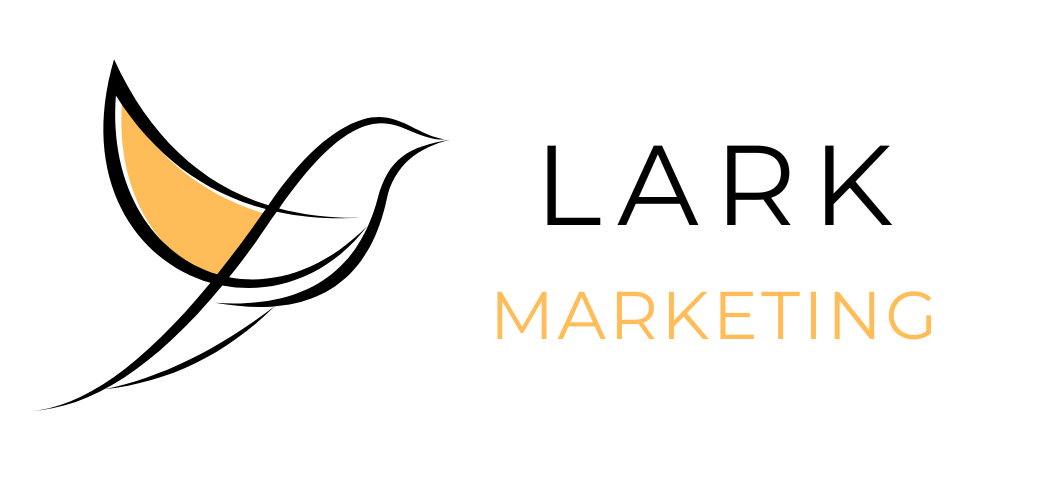My name is Cara, and I speak marketing jargon. Please accept this glossary as an apology!
I’ll admit it. I’m guilty of slipping into marketing jargon more often than I’d like to admit. One minute, I’m having a perfectly normal conversation, and the next, I’m talking about “CTR optimisation,” and “leveraging omnichannel engagement”. Cue the blank stares.
If you’ve ever found yourself nodding along politely while a marketing person (like me) enthusiastically rambles on about A/B testing and technical SEO, you’re not alone. Marketing has its own language, and while it’s second nature to those of us in the industry, it can sound like a foreign dialect to everyone else – particularly if your speciality is law or accountancy (be honest now, you’ll be guilty of using your own jargon there too!)
So, in the spirit of making life easier for everyone (and saving you from deciphering my marketing lingo), I’ve put together this glossary of modern marketing terminology that may be used in the professional services world. Whether you’re looking to improve your website’s SEO, boost your digital marketing efforts, or just want to decode what your marketing consultant is saying (!), this guide will help you.
Marketing terminology
A/B Testing
A method of comparing two versions of a webpage, email, or advert to determine which performs better based on user engagement. The ‘winner’ will determine the rest of the campaign.
Algorithm
A set of rules used by search engines and social media platforms to determine the ranking and visibility of content.
Analytics
The process of collecting, measuring, and analysing data to improve marketing performance.
Artificial Intelligence (AI) in marketing
The use of AI technologies like chatbots, predictive analytics, and personalisation to enhance marketing efforts.
Backlinks
A link from another website (preferably with a good ‘DA’…more below) pointing to your site, which can improve SEO rankings.
Brand Awareness
The extent to which consumers recognise and recall a brand.
Call-to-action
A prompt (usually on a website, email or social media post) encouraging users to take a specific action, such as “Book a meeting” or “Download our guide.”
Click-through-rate
The percentage of users who click on a specific link compared to the number of users who view it.
Content marketing
A strategy focused on creating and distributing valuable, relevant content to attract and retain a target audience, such as blogs, whitepapers, and case studies.
Conversion rate
The percentage of visitors who complete a desired action, such as filling out a contact form or booking a consultation.
Customer journey
The path a client takes from initial awareness to engaging professional services and beyond.
Digital marketing
The use of online channels such as social media, email, and search engines to reach and engage clients.
Domain authority
A search engine ranking score developed by Moz that predicts how well a website will rank on search engine results pages (SERPs). A higher DA indicates greater credibility and ranking potential.
Engagement rate
A metric that measures how users interact with content, including likes, shares, and comments.
Evergreen content
Content that remains relevant and valuable over time, requiring minimal updates, such as industry best practices or FAQs. Or a marketing terminology glossary…
Google snippet
A brief extract of content displayed in Google’s search results, often appearing in a featured/prominent position to directly answer a user’s query. Snippets are designed to improve visibility and drive traffic to a website.
Inbound marketing
A strategy focused on attracting clients through valuable content and experiences rather than outbound advertising.
Influencer marketing
Partnering with professionals or thought leaders in the industry to promote services.
Keyword research
The process of identifying words and phrases that users enter into search engines to optimise content.
Landing page
A standalone webpage designed to capture leads or drive conversions, such as a free consultation offer.
Lead generation
The process of attracting and capturing potential clients’ interest in professional services.
Marketing automation
The use of software to automate marketing tasks such as email campaigns and social media posting.
Network marketing
A business model that relies on person-to-person referrals and recruitment to grow a client base, often used in consulting and coaching services.
Omnichannel Marketing
A seamless approach to marketing across multiple channels, ensuring a consistent client experience.
Organic traffic
Website visitors that arrive through unpaid search engine results.
Outbound marketing
Outbound marketing – a traditional marketing strategy that involves a business proactively contacting potential customers (i.e. telesales)
Pay-per-click (PPC)
Pay-Per-Click (PPC) – A digital advertising model where advertisers pay a fee each time their online advert is clicked.
Persona
A semi-fictional representation of an ideal customer based on research and data.
Personalisation
Customising marketing messages based on user behaviour, preferences, and data
Referral marketing
A strategy where businesses encourage and reward clients for referring new customers, often through incentives like discounts or exclusive services.
Remarketing/Retargeting
Targeting users who have previously interacted with a firm’s website or content to encourage conversion.
Search Engine Optimisation (SEO)
The practice of optimising content to improve visibility in search engine results. SEO is divided into:
On-page SEO
The optimisation of individual webpages, including content, keywords, meta descriptions, header tags, and internal linking to improve search rankings.
Technical SEO
The backend optimisation of a website, including site speed, mobile-friendliness, structured data, and XML sitemaps to ensure better crawling and indexing by search engines.
Social proof
The influence of testimonials, reviews (i.e. Google, Trustpilot) and case studies in shaping client decisions.
Thought leadership
Establishing a firm or individual as an authority in the industry through expert content, speaking engagements, and media features.
Thought leadership
Establishing a firm or individual as an authority in the industry through expert content, speaking engagements, and media features.
Thought leadership
Establishing a firm or individual as an authority in the industry through expert content, speaking engagements, and media features.
User-generated content (UGC)
Content created by clients, such as reviews and testimonials, that firms can leverage for marketing.
User-generated content (UGC)
Content created by clients, such as reviews and testimonials, that firms can leverage for marketing.
Zero-click search
A search engine result that provides an answer directly on the search page, eliminating the need to click through to a website.
So, the next time I throw around phrases like “leveraging AI for personalised remarketing,” you can smile, nod, and then discreetly check this glossary. You’ll be fluent in marketing-speak in no time!

